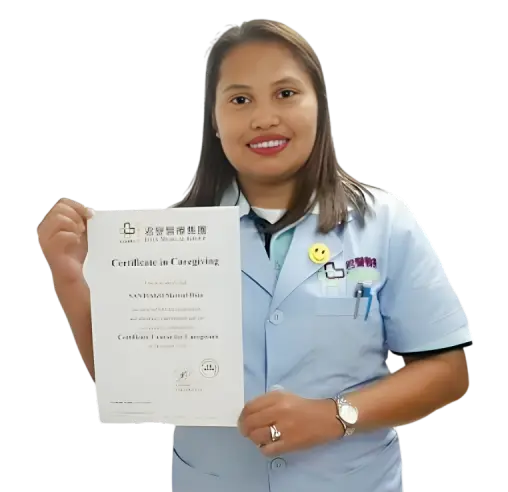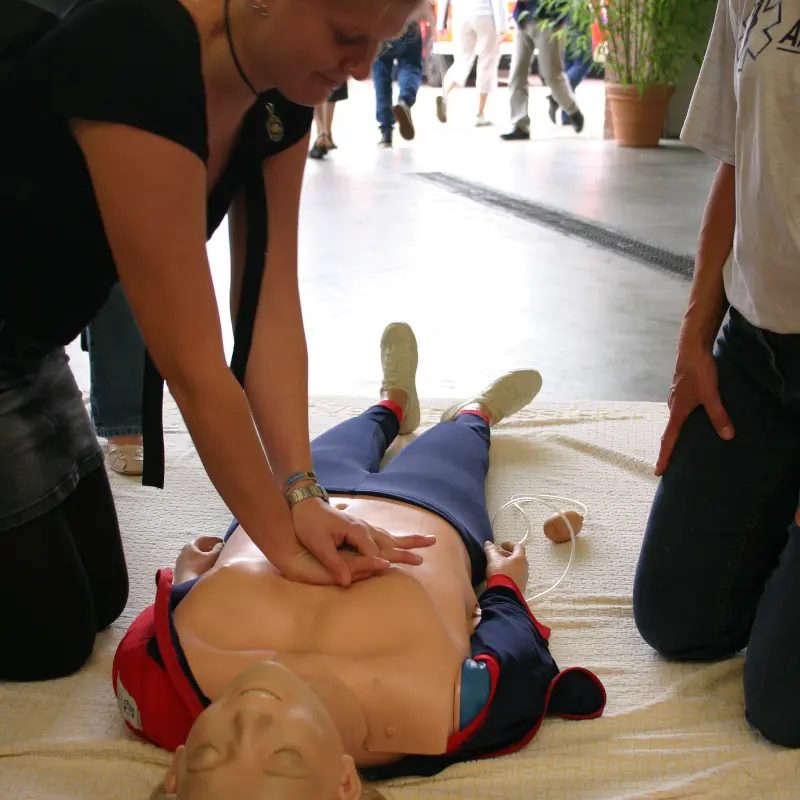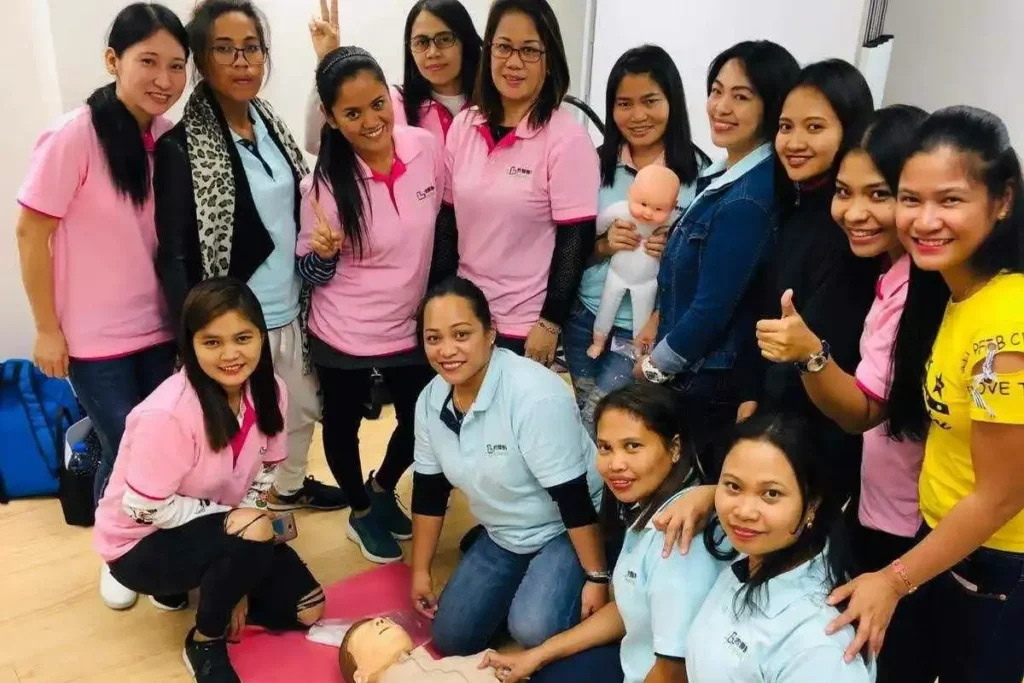Live In Caregiver: Master These 10 Skills for Your Dream Job

- What Is a Live In Caregiver?
- Types of Caregiver Jobs Available
- Benefits of Being a Live In Caregiver
- Top 10 Must Have Live in Caregiver or Home Care Giver Skills
- How to Find Live in Caregiver Jobs
- Tips for Creating a Standout Caregiver Resume
- Interview Tips for Caregiver Job Interviews
- The Importance of Caregiver Certifications and Training
- How To Find Rewarding and Fulfilling Live-in Caregiver or Home Care Giver Jobs
- Conclusion
- Frequently Asked Questions (FAQs)
What Is a Live In Caregiver?
A live in caregiver or home care giver is a professional dedicated to offering support and assistance to individuals, commonly elderly care, disabled, or those requiring constant care, all within the confines of their own home.
In contrast to caregivers with specific visiting hours, live in caregivers take up residence with their clients, delivering continuous aid around the clock.
The duties of a live in caregiver or home care giver encompass various responsibilities, including assisting with activities of daily living, providing companionship, elderly care, administering medication, feeding assistance, and addressing the specific needs of those they care for.
Beyond the physical aspects, this role involves creating an empathetic and supportive atmosphere that prioritizes the overall well-being of the client.
Live in caregivers or home care givers don’t just fulfill a job description; they become an integral part of their clients’ lives.
This involvement includes participating in daily routines, offering emotional support, and ensuring a secure and pleasant living environment.
This immersive approach distinguishes live-in caregiving, fostering a profound and authentic connection between the caregiver and the individual in need of care.
Additionally, this article will help you if you are interested in finding caregiving jobs abroad.
Types of Caregiver Jobs Available
When it comes to caregiver jobs, there is a wide range of options to choose from.
Some common types of caregiver jobs include:
- Personal Care Aides: Personal care aides provide elder care or senior caregiving assistance with daily activities such as bathing, dressing, and grooming. They may also assist with meal preparation and medication reminders.
- Home Health Aides: Home health aides provide similar assistance to personal care aides, but they also have some medical training. They may help with basic medical tasks like checking vital signs and administering medication.
- Certified Nursing Assistants (CNAs): CNAs work in healthcare facilities such as hospitals and nursing homes mainly elderly care services. They provide direct patient care under the supervision of registered nurses.
- Live In Caregivers: Live in caregivers provide round-the-clock care mainly elder care for individuals who require constant assistance. This type of caregiver job is especially suitable for those who prefer a more immersive home care giver experience.
Benefits of Being a Live In Caregiver
Being a live in caregiver offers numerous benefits that make it an attractive career choice.
Firstly, live in caregivers often have the opportunity to develop deeper and more meaningful relationships with their clients, as they are present in their daily lives.
This can be incredibly rewarding and fulfilling, knowing that you are making a significant difference in someone’s life.
Additionally, live in caregivers typically receive free room and board as part of their compensation package.
This can be a significant financial advantage, as it eliminates the need to pay for housing expenses.
Moreover, live in caregivers or home care givers often have more flexible schedules compared to those in other caregiver roles, allowing for a better work life balance.
Top 10 Must Have Live in Caregiver or Home Care Giver Skills
While specific qualifications and skills may vary depending on the type of caregiver job, there are several common requirements for most caregiver positions.
These include:
- Compassion and Empathy: A live in caregiver or home care giver must genuinely care about the well-being of their clients and possess the ability to empathize with their needs and challenges.
- Good Communication Skills: Effective communication is crucial in live-in caregiver jobs, as it ensures that clients’ needs are understood and met. Care givers should be able to communicate clearly and respectfully with clients, their families, and other healthcare professionals.
- Physical Stamina: Since most live in caregivers will care for elderly at home, these jobs can be physically demanding, requiring live-in caregivers to assist with activities such as lifting, transferring, and bathing. Having good physical stamina is essential to perform these tasks safely and effectively.
- Patience and Flexibility: Care givers should have patience and be adaptable to changing circumstances. They should be able to handle unexpected situations calmly and adjust their caregiving approach accordingly.
- Personal Care Skills: Mastering personal care skills as a home care giver mainly elderly care services involves not only assisting with the fundamental Activities of Daily Living (ADLs) but also cultivating a nurturing approach to bathing, dressing, and grooming.
- Time Management: A caregiver’s adeptness in time management goes beyond merely organizing daily routines; it encompasses the delicate art of juggling responsibilities and skillfully prioritizing caregiving tasks.
- Organization Skills: The organizational prowess of a caregiver extends to seamlessly managing not only medications and appointments but also crucial documents.
- Nutrition and Meal Preparation: A live in caregiver showcase must culinary craftsmanship by not only providing meals but ensuring they are nutrient-rich and well-balanced.
- Attention to Detail: Exemplifying detailed caregiving involves more than just safety measures; it requires a constant commitment to upholding precision and cleanliness in caregiving settings.
- Basic Medical Knowledge: Live-in caregivers with medical knowledge adeptly handle health conditions and procedures, including expert Medication Management for safe and effective administration.
How to Find Live in Caregiver Jobs
When searching for live-in caregiver jobs, it’s essential to explore various avenues to increase your chances of finding the perfect fit.
Here are some effective strategies for finding caregiver jobs near me:
- Online Job Boards: Websites such as care.com, 24 hour home care, and caregiverjobs.io often have caregiver job listings. These platforms allow you to search for jobs based on location, job type, and other criteria.
- Networking: Reach out to friends, family, and acquaintances who may have connections in the healthcare industry or know of caregiver job opportunities. Networking can often lead to valuable leads and referrals.
- Local Agencies and Organizations: Contact local home care agencies, nursing homes, and hospitals to inquire about caregiver job openings or elderly care jobs.
- Community Resources: Check with local community centers, senior centers, and churches, as they may have resources and information about caregiver job opportunities in your area.
Tips for Creating a Standout Caregiver Resume
A well-crafted caregiver resume can significantly increase your chances of landing your desired job.
Here are some tips to create a standout care giver resume:
1. Highlight Relevant Experience
Include any relevant experience you have in caregiving, whether it’s professional or personal. Focus on the skills and tasks you have performed that are directly related to caregiver jobs.
2. Showcase Your Skills
Clearly outline your skills and qualifications, emphasizing those that are most relevant to the caregiver role you are applying for.
Include skills such as medication management, CPR certification, and experience with specific medical conditions.
3. Tailor Your Resume
Customize your resume for each caregiver job application to highlight the specific qualities and skills that match the job requirements.
This shows employers that you have taken the time to understand their needs and are genuinely interested in the position.

Interview Tips for Caregiver Job Interviews
Preparing for a caregiver job interview is crucial to make a positive impression on potential employers.
Here are some tips to help you succeed in your caregiver job interviews:
1. Research the Employer
Learn as much as you can about the employer before the interview.
Familiarize yourself with their mission, values, and the services they provide.
This will demonstrate your genuine interest in the organization.
2. Prepare Responses
Anticipate common interview questions and prepare thoughtful responses that highlight your skills and qualifications.
Practice answering questions related to your caregiving experience, problem-solving abilities, and how you handle difficult situations.
3. Dress Professionally
Dress appropriately for the interview, choosing attire that is professional and suitable for a caregiver role.
This shows that you take the interview seriously and are committed to presenting yourself in a professional manner.
4. Ask Questions
Prepare a list of questions to ask the interviewer to demonstrate your interest and engagement.
Inquire about the specific responsibilities and expectations of the caregiver role, as well as the training and support provided by the employer.
The Importance of Caregiver Certifications and Training
Certifications and training play a vital role in caregiver jobs, as they ensure that caregivers have the necessary skills and knowledge to provide quality care.
Some common certifications and training programs for caregivers include:

1. Certified Nursing Assistant (CNA) Certification
- CNAs undergo formal training programs and must pass a competency exam to become certified.
- This certification is often required for caregiver jobs in healthcare facilities.

2. CPR and First Aid Certification
- CPR and first aid training are essential for caregivers, as they may need to respond to emergencies and provide immediate medical assistance.
3. Dementia Care Training
- Many live-in caregiver jobs involve caring for individuals with dementia.
- Specialized training in dementia care equips caregivers with the skills to provide appropriate care and support for individuals with memory loss.
4. Ongoing Professional Development
- Live in caregivers should strive for continuous learning and professional development by attending workshops, seminars, and caregiving courses.
- This helps caregivers stay updated on the latest caregiving techniques and best practices.
How To Find Rewarding and Fulfilling Live-in Caregiver or Home Care Giver Jobs
Family Caregiver Alliance is an online platform that connects caregivers with job opportunities that match their skills, qualifications, and preferences.
By creating a profile on Caregiver Connect, you can access a vast network of potential employers seeking caregivers like you.
The platform allows you to search for caregiver jobs based on location, job type, and other criteria, making it easier to find rewarding and fulfilling caregiver jobs.
Furthermore, Caregiver Connect provides resources and support to help caregivers excel in their careers.
From caregiver training programs to helpful articles and tips, the platform offers valuable resources to enhance your caregiving skills and knowledge.
Conclusion
Live-in caregiver jobs offer a unique opportunity to make a positive impact on the lives of others while enjoying a fulfilling and rewarding career.
By exploring different types of caregiver jobs, acquiring the necessary qualifications and skills, and utilizing effective job search strategies, you can find the perfect caregiver job that aligns with your passion and goals.
Remember to continually invest in your professional development and consider various online platforms hiring caregivers to enhance your caregiving career.
Embrace the journey of caregiving and experience the joy that comes from helping others in need.
- Canada vs USA: Which country offers the best opportunities for caregivers?
- Best countries to work as caregivers
- Nanny jobs in your area
- Caregiver jobs in nursing homes
- Senior living homes
- Respite care for caregivers
- Comfort care or palliative care
- Hospice care
- Spastic quadriplegia cerebral palsy
- How much is ozempic without insurance?
- Caretaker vs caregiver
- 15 powerful tools for caregivers
- 15 caregiver coping strategies
- Ozempic weight loss plan
- Foods to avoid while breastfeeding
Frequently Asked Questions (FAQs)
What is the difference between a live-in caregiver and a caregiver?
A live-in caregiver or home care giver resides in the same home as the individual requiring care, offering continuous support around the clock and fostering a close, consistent relationship. In contrast, a regular caregiver provides assistance during scheduled shifts but does not live with the client.
How to find a live in caregiver?
To find a live-in caregiver, start by defining the specific needs of the care recipient. Research reputable home care agencies, considering reviews and ratings.
Screen caregivers for qualifications and experience, conduct interviews, and check references.
Discuss terms thoroughly, opt for a trial period if possible, and maintain open communication for a successful caregiving arrangement.
How many hours does a live-in caregiver work?
A live in caregiver typically works around 8 to 12 hours a day, but the exact hours can vary based on the agreed-upon terms with the care recipient and the caregiving agency or employer.
It’s important to establish a clear schedule and expectations during the hiring process, taking into account the caregiver’s need for breaks and adequate rest.
What are some important soft skills for caregivers?
Soft skills crucial for caregivers include empathy, compassion and effective communication skills are essential for building rapport with clients.
What are the skills for elderly care givers?
These include proficiency in activities of daily living (ADL) assistance, such as bathing, dressing, and grooming.
Knowledge of proper transfer techniques and mobility assistance is crucial in order to take good care of elderly at home.
Basic medical skills like monitoring vital signs and recognizing health changes are important.
Familiarity with specialized equipment like walkers or wheelchairs, and the ability to assist with exercises prescribed by healthcare professionals.




